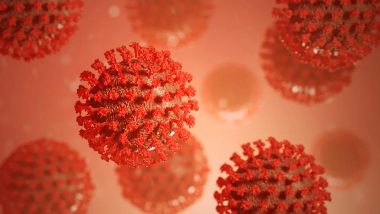New Delhi, January 17: A US-based doctor has asserted that the coronavirus pandemic has affected people psychologically a lot, especially those who tested positive and remained in isolation for a long period. Speaking at a webinar with various renowned medical expertises, Dr Sunita Jain, Consultant Physician in Physical Medicine and Rehabilitation at the Baptist Hospital, Mephis, she also emphasised on the post-Covid rehabilitation aspect of the pandemic.
"In India, the vaccination drive has begun. But it will be a challenge for the medical experts to help stabilise a large number of people who have been affected psychologically. In the beginning, the Union government and health centres faced tough times to provide infrastructures to fight the battle due to large number of patients. And now, if a large number of people faced brain-related disorders, it won't be too easy for countries like India. It is certainly going to be a big task for the government." Indirect Adverse Effects of COVID-19 on Children and Youth's Mental, Physical Health.
Sharing her experiences of treating such patients during the pandemic, Dr Sunita said: "I have seen many patients who have faced adverse brain disorders. Many who lost their loved ones and remained isolated for a long period had lost hope. And therefore, we need to focus on another challenge -- bringing such patients back to normal." She also said that those affected by COVID-19 and other respiratory problems may face weakness for a long period.
Dr Sunita also said that rehabilitation and therapy infrastructures would be needed in large numbers after the vaccination is done. "I am saying it because it is a fact that one round of vaccination is not enough to break the chain globally. This coronavirus is going to exist in our lives for a long time." A doctor of internal medicine posted at a private hospital in Medcity said that uncertainty about the symptoms of coronavirus infection and lack of accurate information on the disease led to panic among the people about the virus.
"In absence of accurate information about COVID-19 symptoms, communication channels could not spread the right message to the common people, which resulted in panic among them," Dr Shushila Kataria, Director and Head of Internal Medicine Department at Medanta, said at the webinar on Saturday.
Talking about the treatment process, she said; "As every recipe follows a particular protocol, similarly the treatment for COVID-19 required a particular protocol to follow and then keep adding more to it step by step."
"For COVID-19 treatment, the protocol starts with finding its symptoms at the initial stage. Diagnosing the symptoms of COVID-19 is a main process of treatment because the more quickly we find them, the more quickly we can proceed further. But the problem is that in most cases, symptoms are found at least after one or two weeks. And that is why common people have this tendency that they can escape COVID-19 if they remain away from other people and isolate themselves."
Kataria said that the second aspect of treatment was to find if the symptoms were serious or not. "Once the coronavirus symptoms are determined, a doctor finds it easy to decide whether a particular patient requires home isolation or hospitalisation," Dr Kataria added.
She lauded the central government for taking quick decisions on directions for home isolation and thereby allowing patients to remain confined in their homes. "Doing this not only reduced the burden on health centres, but also helped doctors carry out treatment on patients as per beds available in their hospitals. It also helped health institutions to augment the required facilities for the next course of treatment process."
(The above story first appeared on LatestLY on Jan 17, 2021 01:52 PM IST. For more news and updates on politics, world, sports, entertainment and lifestyle, log on to our website latestly.com).













 Quickly
Quickly


